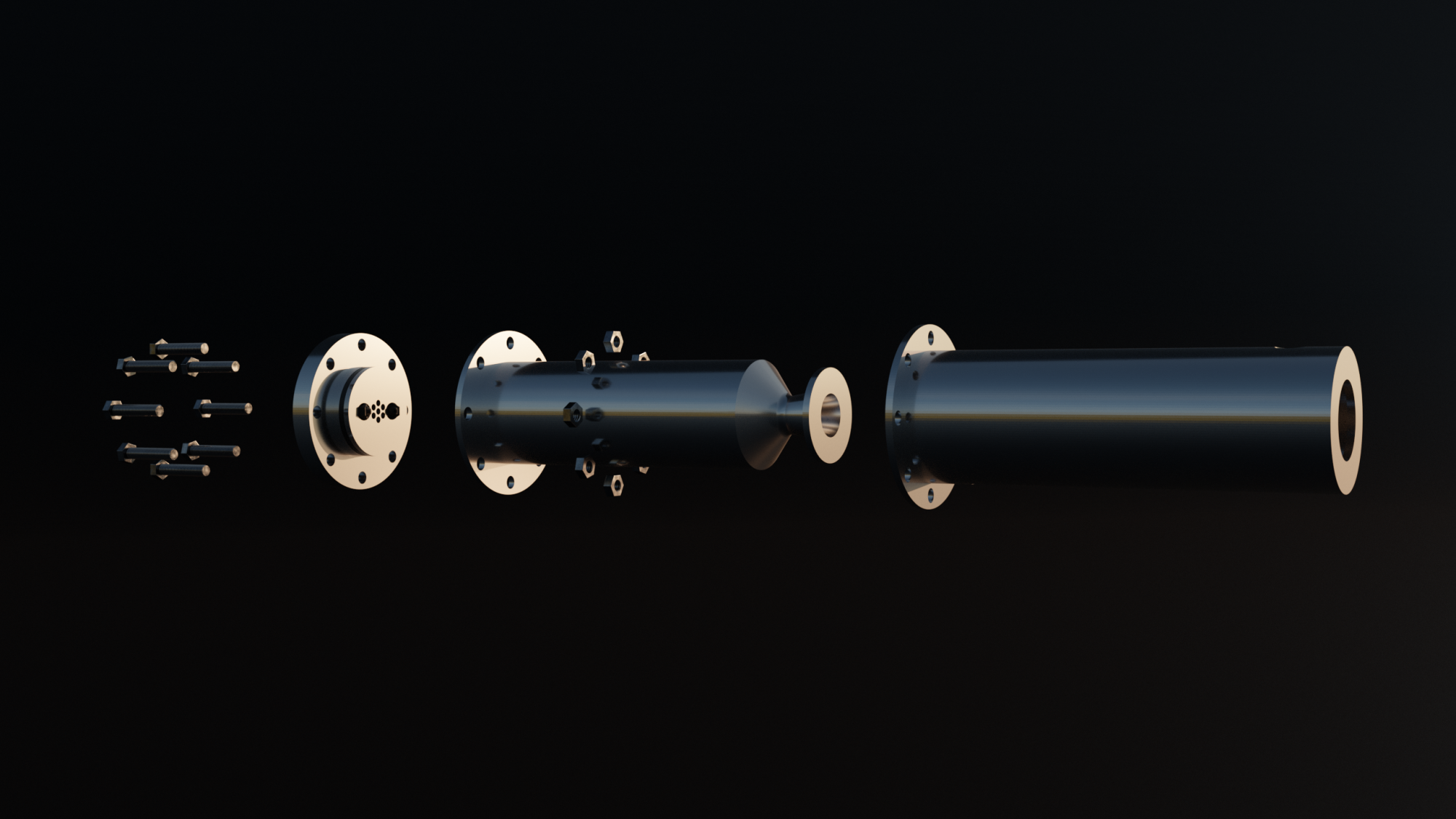The Team
Team VOID is a student team at the TU/e with the aim of researching and developing reusable rockets. TU/e Student Teams are interdisciplinary organizations of students that challenge themselves to tackle significant societal challenges by developing innovative technology. Our team consists of 41 people from 10 programs and 21 nationalities, all working towards the common goal: democratising space access.
Our Mission
VOID develops reusable, student-built rockets and precision flight systems, to democratize access to space and advance European technological sovereignty and innovation in aerospace. Through iterative design processes and low-cost experimentation, we create reliable propulsion, avionics, and guidance technologies while training the next generation of aerospace talent.
Our Vision
VOID is working towards the launch and landing of the Centium rocket in 2050. Centium will ascend to 100 kilometers in altitude, shut off its engine, enter a falling coast phase and then perform a propulsive touchdown at a landing pad.
The Timeline
First flight campaign of Tapeti begins, with frequent flights to test different algorithms
First static test fire of NOVA 2, followed by several more throughout the year
IGNIS launches: March 2026, June 2026, and at EUROC in October 2026
First EUROC participation in 2026, then continuing bi-yearly thereafter
Jackalope 30m hop test, followed by increasingly complex flight tests
3km hop: Hopper launch vehicle ascends to 3km, engine shutdown, coast phase, then propulsive landing
10km hop: Hopper launch vehicle ascends to 10km, engine shutdown, coast phase, then propulsive landing
100km hop: Hopper launch vehicle ascends to 100km, engine shutdown, coast phase, then propulsive landing
Q & A
▼ How does VOID's propulsion, GNC, and landing work serve practical aerospace applications?
VOID develops low-cost, precision flight-control software and conducts R&D on propulsion systems and avionics for dynamic environments, aimed at reusable launch vehicles.
▼ Why is VOID a low-cost, low-risk testbed for emerging aerospace technologies?
VOID develops cost-effective solutions led by passionate students. The team uses a rigorous, iterative engineering process and thorough systems-engineering practices to achieve results comparable to industry standards at a fraction of the cost.
▼ How does supporting VOID strengthen European technological sovereignty and innovation in aerospace?
VOID trains the next generation of engineers and produces local talent. Our ongoing research can incubate larger projects and give aerospace partners cross-industry exposure and new market opportunities. Collaboration with student teams allows organizations to achieve Corporate Social Responsibility (CSR) goals in a mutually beneficial arrangement while contributing to European technological sovereignty and aerospace innovation.
▼ How can partners gain early access to aerospace talent?
VOID is a multinational student organization where BSc and MSc students from varied backgrounds and nationalities work toward a common goal. This environment trains engineers in communication and teamwork while they apply and improve their technical abilities by designing and building complex aerospace systems. Partners gain direct access to motivated, hands-on engineers with real-world experience in rockets, autonomous systems, and integrated aerospace projects.

